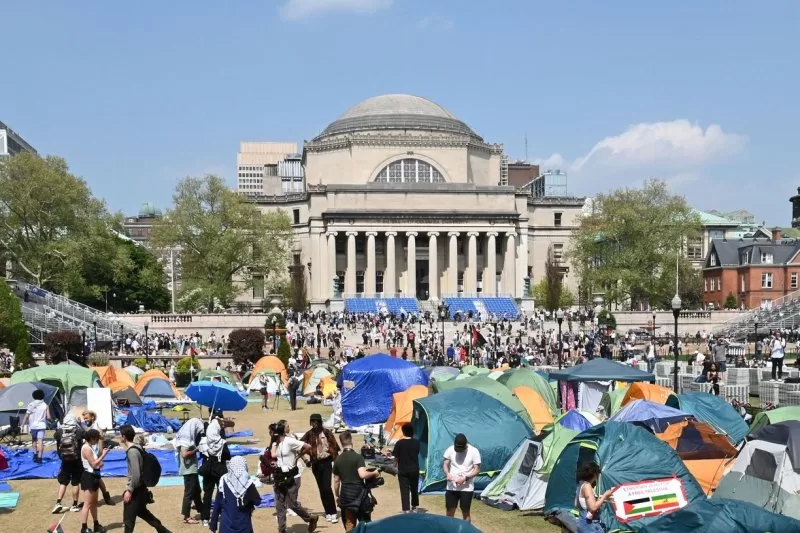Aug. 14 (UPI) — Columbia University president Minouche Shafik resigned from her position Wednesday, weeks before the start of the school year and months after Gaza war protests engulfed the New York City campus.
“I write with sadness to tell you that I am stepping down as president of Columbia University effective Aug. 14, 2024,” Shafik wrote in her resignation letter, just over a year after she became the university’s first woman president.
“Over the summer, I have been able to reflect and have decided that my moving on at this point would best enable Columbia to traverse the challenges ahead,” the Egyptian-born economist added. “I am making this announcement now so that new leadership can be in place before the new term begins.”
Shafik is the third Ivy League president to resign her post over campus unrest and pro-Palestinian encampments that disrupted finals and canceled Columbia’s main commencement. University of Pennsylvania’s Liz Magill and Harvard University’s Claudine Gay both stepped down over similar criticism.
Gay resigned as Harvard’s president in January amid accusations of plagiarism and backlash over her response to anti-Semitism on campus.
Magill resigned as UPenn’s president last year following harsh criticism in the wake of congressional testimony over anti-Semitic harassment of students.
Since Israel began its war with Hamas in Gaza after the terror group’s Oct. 7 attack, political protests erupted on campuses throughout the United States with Columbia at the forefront.
Shafik testified in April before a House hearing in Washington, D.C., on campus anti-Semitism, days before protesters took over Columbia.
On Wednesday, New York Republican Rep. Elise Stefanik — who grilled Shafik during the House Education Committee hearing — said “Three down, so many to go.”
“After failing to protect Jewish students and negotiating with pro-Hamas terrorists, this forced resignation is long overdue,” Stefanik wrote in a post on X.
“We will continue to demand moral clarity, condemnation of anti-Semitism, protection of Jewish students and faculty, and stronger leadership from American higher education institutions.”
For nearly two weeks, encampments took over much of Columbia as dozens of demonstrators barricaded themselves inside Hamilton Hall. Hundreds of New York Police officers cleared the building and made arrests on April 30, as the university warned students that they could face expulsion.
While Columbia’s administration continued to support Shafik a month later, faculty members in Columbia University’s Department of Arts and Sciences passed a vote of no-confidence against Shafik over her handling of the demonstrations.
Shafik never commented on the no-confidence vote, but called the protests in her resignation letter “a period of turmoil where it has been difficult to overcome divergent views across our community.”
On Wednesday, Columbia’s board of trustees tapped Katrina Armstrong, chief executive officer of the Columbia University Irving Medical Center, to serve as the university’s interim president.
“As I step into this role, I am acutely aware of the trials the university has faced over the past year,” Armstrong wrote in an email to the university. “We should neither understate their significance, nor allow them to define who we are and what we will become.”
As for Shafik, she will return to Britain — where she had been president of the London School of Economics and Political Science — to work with the House of Lords where she will fight global poverty and promote sustainable development.
“I am honored to have been asked by the UK’s Foreign Secretary to chair a review of the government’s approach to international development and how to improve capability,” she said, adding these are “areas of lifelong interest to me.”
